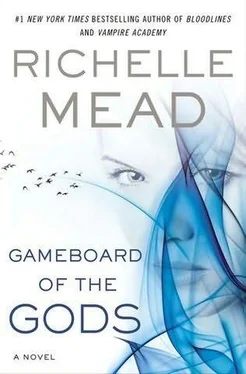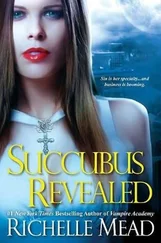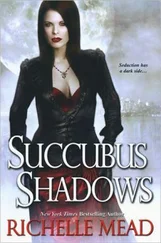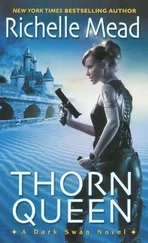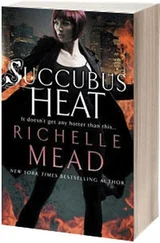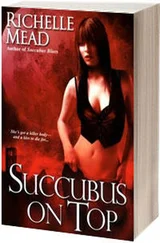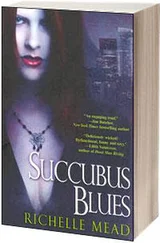Tessa felt Justin come to a halt beside her. His eyes were fixed on the flag, his expression reminding her of when their plane had descended into the city. She saw that ache and longing again—and more. There was joy in his eyes. And relief. And awe. And disbelief.
Until this moment, he never actually thought he’d make it back, she thought.
Mae had stopped as well and watched as Justin gazed at the flag. For the first time today, Mae didn’t regard him with exasperation. There was a softness in her expression, something fleetingly affectionate, that took Tessa totally by surprise.
“Welcome home,” Mae said.
He didn’t believe in Huan’s hell, but as Justin stepped into the RUNA, he could almost believe in a heaven.
It was everything he remembered. Bright. Orderly. Efficient. Clean. And advanced . No armed thugs or dilapidated buildings. The lack in provincial technology had always been apparent in his exile, but it didn’t really hit him until he was surrounded by modernity again. The chip readers. The monitors. The egos. Here was the world as it should be, the country that had survived the Decline to emerge more brilliantly than it had started. His homeland. Where he belonged.
Stop drooling, snapped Horatio. The girl’s going to pass out.
Justin glanced over at Tessa and saw that the raven wasn’t that far off from the truth. She was still pale and anxious. He squeezed her hand.
“You’re okay. Stay with me here.”
She was having a hard time, but Justin stood by his decision to bring Tessa here. She was capable, and she deserved this. Sergio had taken Justin in without question when he’d shown up penniless in Panama. Marta Cruz had always believed Justin was a freeloader, but he had strong convictions about paying his debts. Choosing where to go in exile had been the biggest gamble Justin had ever made, with his life as the wager. Gemman authorities had escorted him from his office straight to the nearest airport, telling him he could go “anywhere but here.” He’d had only minutes to make a decision. Central and South America were the obvious options. Their populations had been diverse enough to help them weather the Decline better than other places, and they were more stable than most provinces.
And you see yourself in her, Horatio said.
Justin didn’t deny it because it was true. For a moment, Tessa’s face dissolved, and he saw another one in his mind, an older face that had seemed beautiful to his ten-year-old self. The noise and smells of the Anchorage market had surrounded them, and his boss had been yelling for him to return. How did you do that? the beautiful woman had asked. It’s easy, Justin had replied. You just have to look at their faces. And with those words, his life had changed.
Studying Tessa now, he was struck by how painfully out of place she looked. With her ankle-length skirt and thick hair, she could’ve been a time traveler from another century. She attracted a lot of stares, so it was probably just as well that her eyes were kind of glazed over. Walking next to Mae, so perfect and polished in her tailored outfit, didn’t help Tessa’s appearance, though it occasionally allowed Justin to see flashes of compassion on Mae’s face when she didn’t think anyone was looking. Killer soldier, haughty castal, bitter one-night stand…whatever she was, Mae had a soft spot for frightened provincial girls.
“Can’t we take a car?” he asked her when he realized they were headed toward the airport’s entrance to the subway.
Mae shook her head. “We need her chipped, and this way’s faster to the Citizens’ Ministry.”
“I don’t want a chip,” Tessa repeated, abandoning one fear for another.
“It’s easy,” he said. “And it’ll make your life a lot easier.”
She looked skeptical, probably because her crackpot mother had filled her with all sorts of idiocy about chips sealing Gemmans to the devil.
Proving his point, Tessa triggered an alarm when she passed through the transit entrance. The guard waved them on once Mae stopped to show him Tessa’s documentation and card, though Justin was pretty sure Mae could’ve achieved the same effect by flashing a gun, that ridiculous knife, or the look she’d given Justin last night upon learning he wasn’t Huan Korokov.
“That’ll happen every time you go through a checkpoint if you don’t have a chip,” Justin told Tessa. “Sensors like this are scattered around the city.”
“Tracking us,” she said darkly.
“It’s not recorded. Most are just scanning to make sure everyone’s got an authentic chip—or the paperwork to explain why they don’t. The chip will send its person’s name to the scanner, but that’s only to match it against outstanding warrants. Most of the time, the names are dumped after that.”
“Most?” Tessa asked. Smart girl, picking up on the one-word nuances he loved.
“Most,” he affirmed. They came to a halt near the yellow-line train’s platform. “High-security spots—like this airport—will have scanners synched to the National Registry. All the people going through are checked against that to make sure they have a matching official record.”
“Still sounds like tracking to me. No one can go anywhere unnoticed.” At least ruminating over conspiracy theories distracted Tessa from the tightly packed subway tunnel. “And doesn’t the registry control names?”
He thought about it. “‘Control’ isn’t the right word. It’s just a way to strengthen national unity.” Per RUNA policy, all citizens had to have a name of Greek or Latin origin to be in the National Registry database. Castals could call each other whatever ethnic names they wanted on their grants, but in the eyes of their country, their names had to meet the same criteria as those of plebeians. “Besides, there are thousands of choices.”
“It’s still a limitation.”
“Whatever you say, Teresa. Your dad isn’t stupid. He gave all of you RUNA-friendly names in a continuing insurance plan in case you ended up back here.”
Tessa looked dumbstruck at this revelation, then almost appeared offended that she’d been put into a preexisting system without her consent or knowledge. It kept her quiet as they rode the train through the city, and although she caught her breath when they emerged out onto the high light-rail platform, she didn’t have a meltdown, which Justin took as a promising sign of her ability to adapt. She’d be part of this world in no time.
Once they were off the train and walking outside at ground level, Justin found he was the one dazzled and overwhelmed. The soaring buildings glittered in the setting sun, casting shadows on the earthbound pedestrians moving below. The light-rail track curved between buildings, while below it, automated traffic flowed smoothly and efficiently. Screens with ever-changing images filled shop and restaurant windows. Other, larger screens were mounted on buildings, running the latest headlines, political profiles, and ads for every good and service imaginable. It was a far cry from the dirty streets of Panama City, with its hodgepodge of shady pedestrians, gas-powered cars, cart vendors, and, at times, horses.
Their subway stop was two blocks from Hale Square. The square was a wide, grassy park flanked by three federal buildings, resplendent in marble and pillars: the Citizens’ Ministry, the Ministry of Internal Security, and the Ministry of Diplomacy. A Gemman flag hung on each building, and there were no advertisements or screens of any kind. The Citizens’ Ministry was the department that oversaw chips and the National Registry, and as they approached it, Justin paused to glance over at Internal Security. That was the building the servitors worked out of, where his old office had been. It seemed a lifetime ago since he’d strode into work each morning, confident in being at the top of his career. He’d had the world in his hands, never once dreaming it’d be ripped out from under him.
Читать дальше
